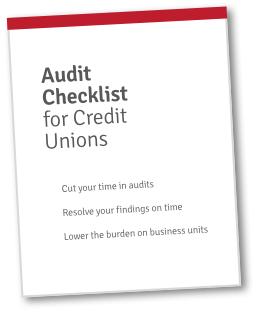You could say there’s a reason regulators call them exams.
But the National Credit Union Administration (NCUA) publishes detailed roadmaps to passing – the kind of study guides that only the most lenient professor would provide.
These guides are called the AIRES questionnaires. They’re easy to download and available to any credit union.
PolicyWorks may have summed it up best: “The AIRES questionnaires are an awesome and intuitive tool. They can save you from a lot of headaches, Examiner Findings, and maybe even a Document of Resolution item from your next examination."
If your credit union utilizes the questionnaires, you can expect to see the following results:
1) You will produce higher-quality responses to examination requests, with less effort.
Following the AIRES guide will enable your examination responses to more directly answer what your examiner is looking for.
That means examiners will have fewer supplemental requests and follow-up questions after you’ve submitted your response.
More to the point, the examiners will get more of what they are looking for, and demand less of your staff’s time.
2) You will create a more effective, more efficient and more reliable examination process.
Examination time is an all-hands-on-deck moment. It’s unavoidable.
But that doesn’t mean your team has to be in a mad dash all the time. The AIRES questionnaires give you a roadmap for your preparation. With that knowledge, you can plan the work out over the course of a year.
Does one specific topic need more in depth research? You’ll have time for that. Does another issue require some adjustments by your organization to satisfy new NCUA guidelines? You’ll have time for that also. And you’ll have plenty of materials ready when it’s exam time.
3) You will lower your overall regulatory risk.
To continue the college finals analogy, being able to pass a test is one thing. Knowing you have mastered the material is something else – something that is more valuable.
Credit unions that use the AIRES questionnaires to prepare for exams will meet strategic goals in the process. For instance, your credit union will not just pass an exam about consumer protection, it will get better at consumer protection itself.
A credit union can pass a regulatory exam just by being reactive. But a credit union that plans ahead and is proactive will lower their overall regulatory risk.
The AIRES questionnaires are invaluable “study guides” for credit unions. As Ongoing Operations writes, they are “literally … your cheat sheet to passing an NCUA exam.”
They’ll also help you produce higher-quality responses, create a more efficient and effective process, and lower your overall regulatory risk.
And that’s a lot better than pulling an all-nighter.

FREE: Audit Checklist for Credit Unions
4 key principles and 9 questions to jumpstart your audit planning. From leading credit unions.Resources:
- Downloadable NCUA AIRES Questionnaires
- Full NCUA Examiner’s Guide (which facilitates even more in-depth preparation)






